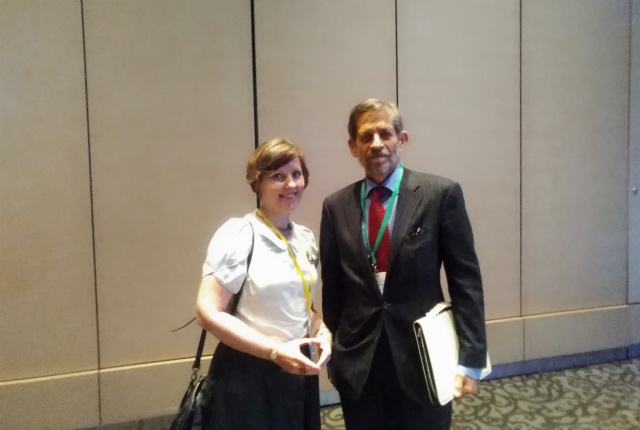A week ago, President Vladimir Putin held a meeting with permanent members of the Security Council and pointed out that on August 18, 2019, the Americans tested a cruise missile, which belongs to the prohibited category under the Treaty on the elimination of intermediate-range and shorter-range missiles (INF), which ends in 2020.
This happened two weeks after the US withdrawal from the Treaty. Russia said, according to the President’s instructions, that it was preparing a “symmetrical response”. However, the Americans already accused our country of violating the terms of the Treaty.
Although Putin’s speech ended with the diplomatic formula “Russia is open to an equal and constructive dialogue”, at first glance it seems that the INF Treaty as a deterrent mechanism for deadly weapons has outlived its usefulness. But is it? Are politicians incapable of agreeing on such important issues?
Far from it. Ambassador Thomas Graham Jr., a former senior American diplomat who has repeatedly participated in negotiations on international arms control and non-proliferation agreements, spoke to “E-Vesti a couple of months ago about the twists and turns of the INF and the negotiation process. In a strategic sense, the dialogue is ongoing, it will continue and both sides will find a solution, although under the conditions of a new agreement. His words are below.
EV: Mr. Graham, I would like to ask you about the Russian-American relations. It seems that the first signs of its improvement are already seen. Trump administration makes some steps towards Russia. Am I right?
Thomas Graham Jr.: Yes, Trump’s administration has made some steps towards Russia. I think, that it’s clear, that the administration as well as the president himself would like to stabilize the relationships with your country in spite the pressure coming from the congress who levies more and more sanctions. Trump administration is hesitant to levy the additional sanction on Russia, and I think they wil continue this policy.
The president himself was eager to have another meeting with president Putin. I know that there are conversations on meeting on March and in summer and it was a formal request from United States. He wanted to discuss some priority issues of our relations.
EV: Weapon agreement is over in 2020. What do you think about possibility of its prolongation?
Thomas Graham Jr.: There is The Intermediate-Range Nuclear Forces Treaty (INF) Treaty which I think is dead for practicable purposes.
And to start agreement we have to wait and see for both sides. I have an interest in the extention of the start treaty. I don’t believe that the American administration is interested in the prolonged discussion of how the treaty could be extended. So, I know that the Russians have some concerns that they want to discuss as part of the process of prolonging treaty. My guess is that the American administration is not interested in having those discussions in any details, those prolongations will be a simple prolongation of the treaty as it is now.





